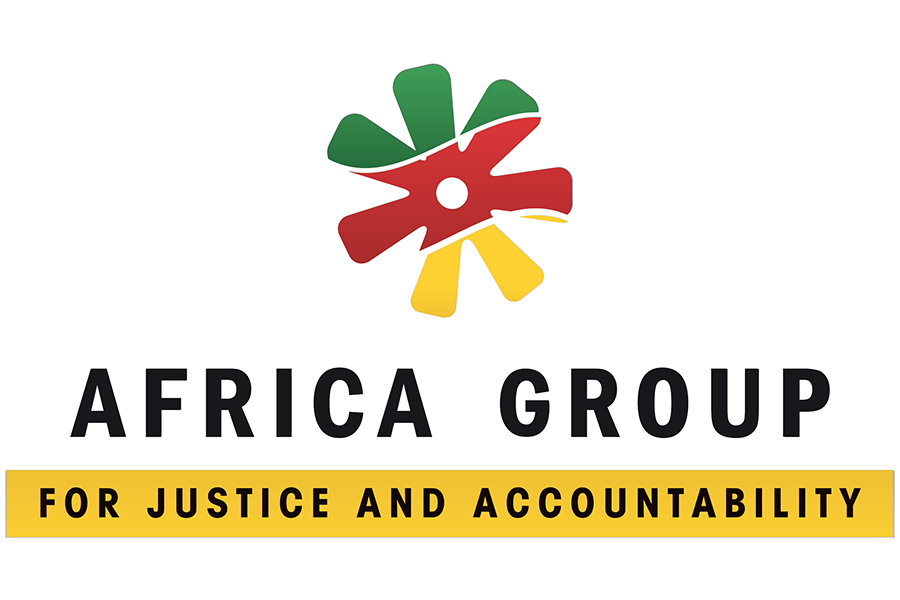AGJA Statement, 14 August 2024
The Africa Group for Justice and Accountability (AGJA) welcomes the trial and conviction of those responsible for the 2009 Stadium Massacre in Conakry, Guinea. The Group congratulates the Guinean authorities involved in this historic decision, sincerely hopes that it will provide a sense of justice and closure for the victims and their loved ones, and stresses the importance of reparations being delivered to those who suffered from the 28 September 2009 attack.
On 31 July, a court in Conakry pronounced the conviction of former President Dadis Camara, his aide-de-camp, Aboubacar Diakité, and former Secretary of State, Moussa Thiegboro Camara, on charges of crimes against humanity. The charges included torture, kidnapping and rape.
AGJA extends its congratulations to civil society organisations and groups representing victims on their outstanding efforts in pushing for accountability, including but not limited to the Association of Victims, Parents and Friends of the September 28 Massacre, the Guinean Human Rights Organisation, and the International Federation for Human Rights. AGJA commends these groups and others on their ongoing crucial work of addressing the full scope of atrocities committed in Guinea and holding all perpetrators to account. AGJA further emphasises the importance of the Guinean government responding to the concerns of its legal professionals in a manner that reflects and respects the rule of law.
The trial and conviction reflect the critical role played by national justice systems in addressing international crimes, including those perpetrated by senior state officials. In 2009, the International Criminal Court initiated a preliminary examination into the alleged atrocities committed on 28 September of that year. The examination was concluded in 2022, when it became clear that Guinea was active, as well as willing and able, to genuinely and effectively investigate and prosecute those responsible for the deaths of over 150 people, and the violence waged upon many others. The trial and conviction are therefore a vindication and an indication of the ongoing relevance of the principle of complementarity, a central feature of the Rome Statute of the International Criminal Court.
AGJA trusts that the justice achieved will promote healing for victims of the Conakry Stadium Massacre. Crucially, with the conviction secured, reparations must now follow. Indeed, the court awarded a sum of 200 million to one billion Guinean francs for this purpose, and AGJA underscores the importance of ensuring that these awards are duly paid out to the victims.
—
The Africa Group for Justice and Accountability (AGJA) is an independent group of senior African experts on international criminal law and human rights, members of international and domestic tribunals, and human rights advocates that came together in November 2015 to strengthen justice and accountability in Africa. It comprises senior African experts on international criminal law and human rights, including political figures, members of international and domestic tribunals, and human rights advocates. The Wayamo Foundation is the group’s secretariat and convener.
Its current members are:
DAPO AKANDE (Nigeria) Professor of Public International Law, University of Oxford
FATOU BENSOUDA (The Gambia) Former Chief Prosecutor of the International Criminal Court
RICHARD GOLDSTONE (South Africa) Former Chief Prosecutor of the United Nations International Criminal Tribunal for Rwanda and the former Yugoslavia
HASSAN BUBACAR JALLOW (The Gambia) Chief Justice of the Gambia, former Prosecutor at the In- ternational Criminal Tribunal for Rwanda and International Residual Mechanism for Criminal Tribunals
AÏCHATOU MINDAOUDOU (Niger) Former United Nations Special Representative in Côte d’Ivoire, former Acting Joint UN/ AU Special Representative in Darfur, Sudan
BETTY KAARI MURUNGI (Kenya) Senior Advocate of the High Court of Kenya, transitional justice expert, and Professor of practice, SOAS
MOHAMED CHANDE OTHMAN (Tanzania) Former Chief Justice of Tanzania
NAVI PILLAY (South Africa) Former UN High Commissioner for Human Rights
CATHERINE SAMBA-PANZA (Central African Republic) Former Transitional President of the Central African Republic
FATIHA SEROUR (Algeria) Former Deputy Special Representative of the UN Secretary General in Somalia and member of the Global Women Leaders Voices for Change and Inclusion
ABDUL TEJAN-COLE (Sierra Leone) Former Executive Director of the Open Society Initiative for West Africa


